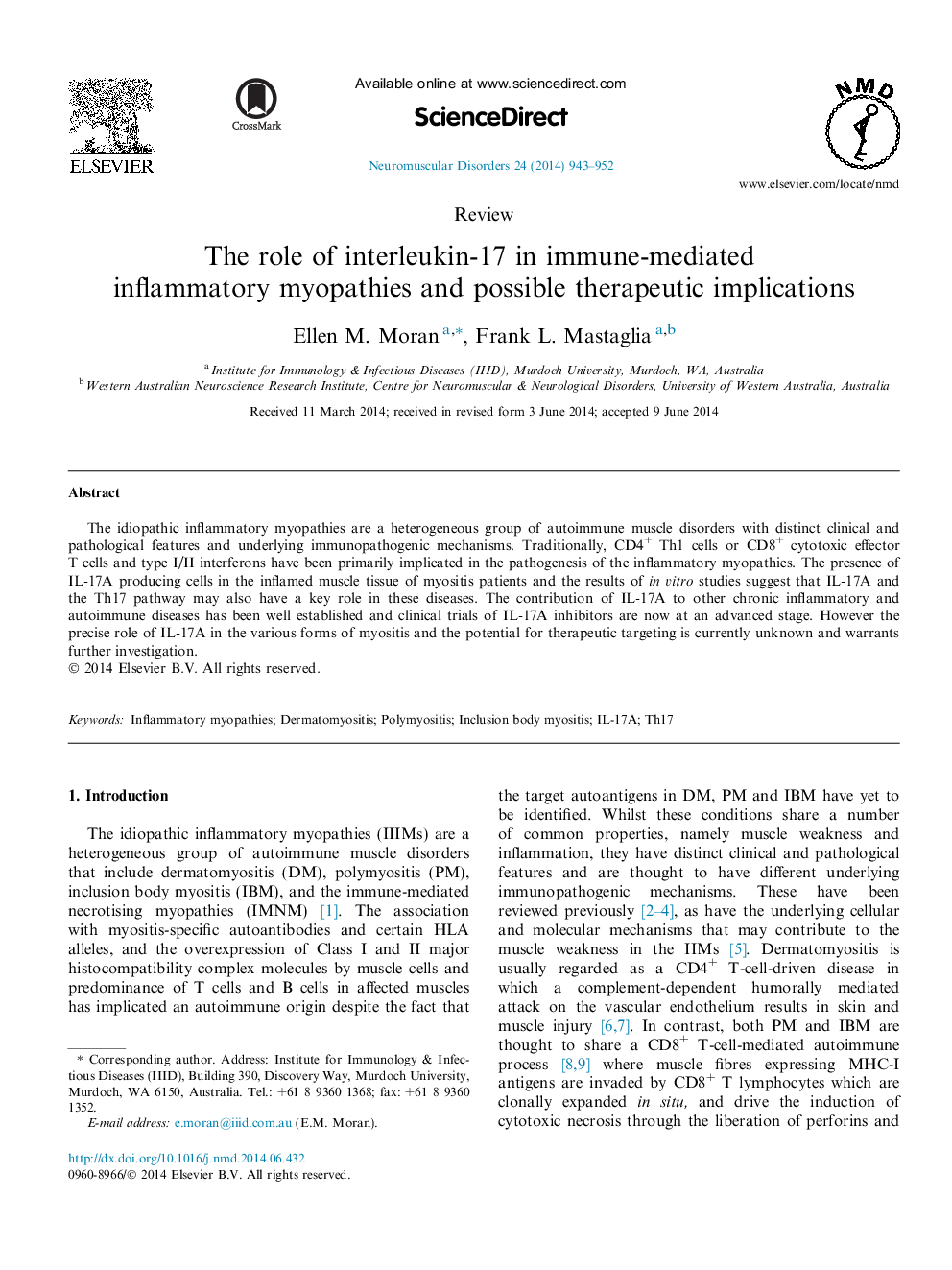| Article ID | Journal | Published Year | Pages | File Type |
|---|---|---|---|---|
| 6041329 | Neuromuscular Disorders | 2014 | 10 Pages |
Abstract
The idiopathic inflammatory myopathies are a heterogeneous group of autoimmune muscle disorders with distinct clinical and pathological features and underlying immunopathogenic mechanisms. Traditionally, CD4+ Th1 cells or CD8+ cytotoxic effector T cells and type I/II interferons have been primarily implicated in the pathogenesis of the inflammatory myopathies. The presence of IL-17A producing cells in the inflamed muscle tissue of myositis patients and the results of in vitro studies suggest that IL-17A and the Th17 pathway may also have a key role in these diseases. The contribution of IL-17A to other chronic inflammatory and autoimmune diseases has been well established and clinical trials of IL-17A inhibitors are now at an advanced stage. However the precise role of IL-17A in the various forms of myositis and the potential for therapeutic targeting is currently unknown and warrants further investigation.
Related Topics
Life Sciences
Neuroscience
Developmental Neuroscience
Authors
Ellen M. Moran, Frank L. Mastaglia,
